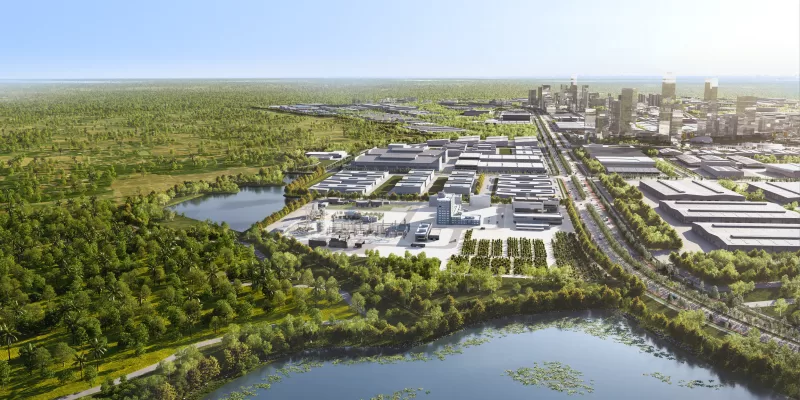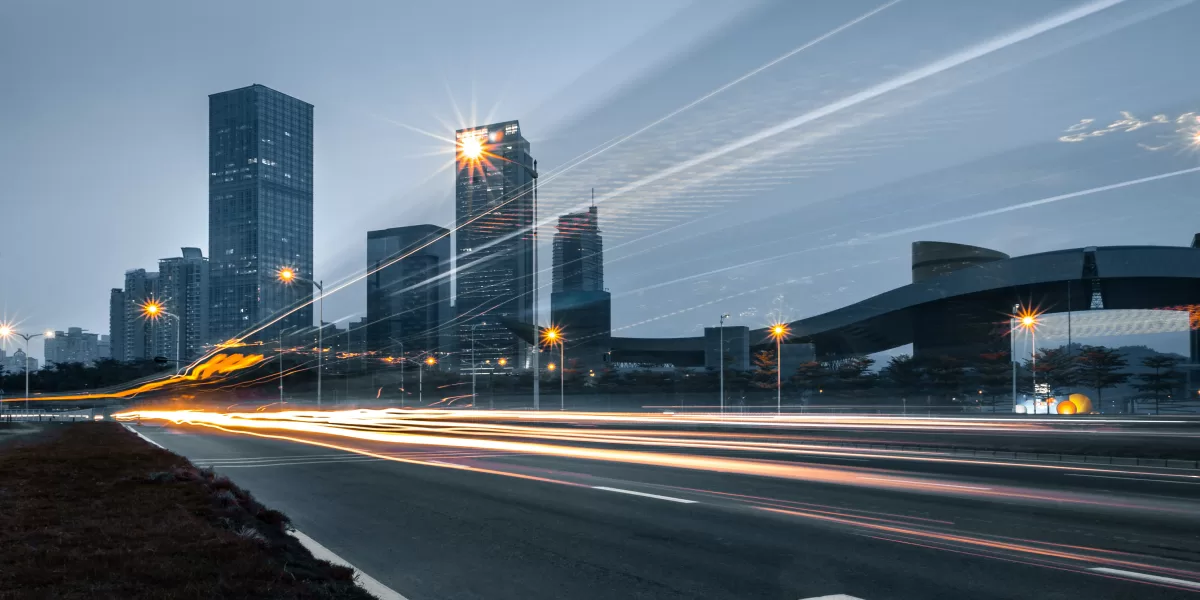In today’s rapidly advancing industrial landscape, infrastructure is no longer just about constructing buildings and roads—it’s about designing integrated systems that enhance efficiency, sustainability, and competitiveness
One transformative system in development is Smart Mobility, a key feature of modern industrial parks like the forward-thinking Subang Smartpolitan. Though yet to be implemented, Smart Mobility is being designed to enhance operations and support for businesses within the park.
This article explores how Smart Mobility is envisioned to reshape industrial parks and why it will matter to businesses aiming to stay competitive in a globalized market.
What is Smart Mobility and Why Does it Matter?
Smart Mobility refers to the use of technology to improve the efficiency, safety, and sustainability of transportation systems. In the context of an industrial park, it extends beyond traditional roads and infrastructure to include advanced technologies like the Internet of Things (IoT), real-time data management, and intelligent traffic solutions designed to optimize the flow of goods and people.
For Subang Smartpolitan, Smart Mobility is not merely an enhancement—it’s a core feature of its planned infrastructure. Once implemented, it will provide manufacturers and businesses with optimized logistics, reduced travel times, and lower operational costs. This will be particularly beneficial in industrial environments, where efficient supply chains and just-in-time deliveries are critical for success.
Smart Mobility infrastructure will ensure that businesses operating within Subang Smartpolitan can function efficiently and sustainably.
Read More: Top #1 EV Brand in China “BYD Indonesia” to Build its Manufacturing Industry in Subang Smartpolitan
Key Benefits of Smart Mobility in Industrial Parks
1. Improved Efficiency
A key advantage of Smart Mobility is the potential for improved efficiency. Once implemented, smart road networks and mobility solutions within Subang Smartpolitan will be designed to reduce traffic congestion and delays, ensuring a smooth flow of goods. This efficient infrastructure will be crucial for industries that rely on timely deliveries and seamless logistics operations.
By incorporating smart road networks capable of real-time traffic management, vehicles transporting goods will be able to take the most efficient routes. For businesses, this means that supply chains will become more streamlined, reducing delays and improving overall productivity.
2. Cost Reduction
Smart Mobility infrastructure will also help businesses reduce operational costs. By optimizing transportation routes and reducing delays, companies can save on fuel consumption and vehicle maintenance. Additionally, intelligent traffic systems are being designed to reduce the likelihood of accidents, leading to fewer costly disruptions.
For businesses operating in Subang Smartpolitan, the potential of lower operational costs adds to the park’s attractiveness. Reduced costs mean that businesses can offer more competitive pricing while increasing profitability.
3. Enhanced Safety
Safety is a top priority for industrial parks, especially where the transportation of goods is involved. Smart Mobility infrastructure in Subang Smartpolitan is being designed with safety in mind, utilizing IoT and real-time data to monitor traffic and manage vehicle flow.
This focus on safety not only protects the businesses within Subang Smartpolitan but also contributes to creating a more desirable environment for future investments.
4. Environmental Sustainability
The environmental impact of industrial activities, particularly in transportation, is significant. Smart Mobility infrastructure is being planned to help mitigate this footprint by reducing fuel consumption and emissions through optimized traffic flow. In Subang Smartpolitan, Smart Mobility will be part of a larger sustainability initiative, which includes systems for monitoring and minimizing energy consumption across the park.
As the park develops, in the future, the incorporation of sustainable transportation solutions such as electric vehicle (EV) charging stations and energy-efficient logistics practices will further reduce the environmental impact. For businesses, this will present opportunities to align with global sustainability goals and appeal to environmentally conscious customers.
Read More: Smart Cities and Smart Grids: Powering the Future of Urban Development
Smart Road Networks: Optimizing Transport Flow in Industrial Parks

The smart road networks are being designed to optimize the flow of transport within the industrial park, reducing bottlenecks and ensuring seamless connectivity between various areas. This will facilitate smoother movement of goods, enhancing operational efficiency for businesses.
Once implemented, the smart road networks will integrate with logistics systems, providing real-time tracking and coordination of shipments. This will give businesses the ability to monitor transport in real-time, improving supply chain management and minimizing the risk of delays.
Smart Mobility as a Catalyst for Business Growth
For businesses considering Subang Smartpolitan as a future home of their factory and/or commercial space, the Smart Mobility infrastructure being designed will play a pivotal role in driving growth. By improving transportation efficiency, reducing costs, and enhancing safety, Smart Mobility will create an environment where businesses can thrive.
Moreover, this soon-to-be infrastructure will make Subang Smartpolitan an attractive destination for investors and tenants. Companies looking to expand or relocate are increasingly prioritizing industrial parks that offer smart infrastructure, as these advanced systems provide the tools needed to remain competitive in a global market.
Subang Smartpolitan’s Approach to Smart Mobility
Although still in the planning and development stages, Subang Smartpolitan’s commitment to Smart Mobility is clear. The park’s infrastructure is being designed to support the mobility needs of both current and future businesses. As technology continues to evolve, Subang Smartpolitan aims to adapt by incorporating new solutions enhancing operational efficiency.
The park’s focus on sustainability ensures that these solutions will not only be efficient but also environmentally responsible. By reducing emissions and promoting energy-efficient transportation, Subang Smartpolitan is setting new standards for industrial park development
Smart Mobility is set to revolutionize how industrial parks operate, and Subang Smartpolitan is at the forefront of this transformation. With its advanced road networks, intelligent traffic systems, and commitment to sustainability, Subang Smartpolitan is creating an environment where businesses can enhance their operational efficiency, reduce costs, and grow in a competitive market.
For businesses looking to embrace future-ready technologies and thrive in a connected world, Subang Smartpolitan offers an ideal environment to succeed. To learn more about the unique advantages and opportunities available in Subang Smartpolitan, visit Subang Smartpolitan for more information.

